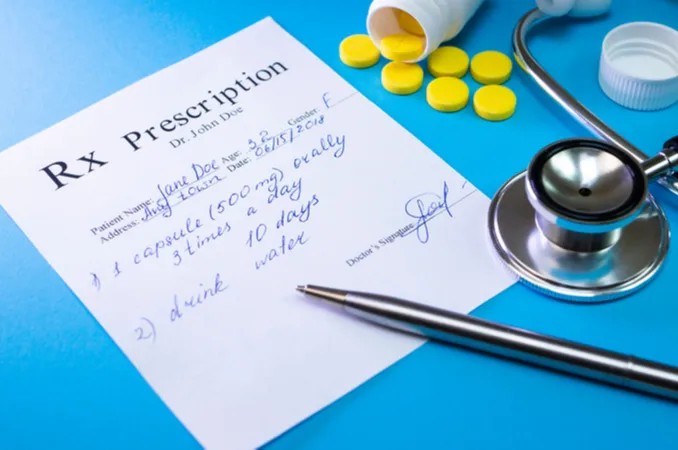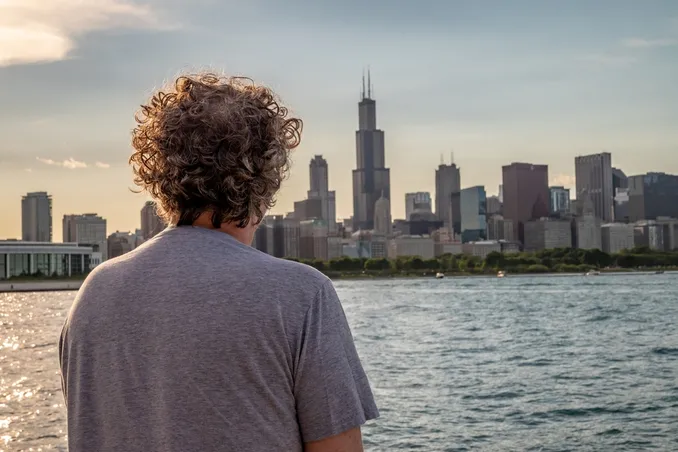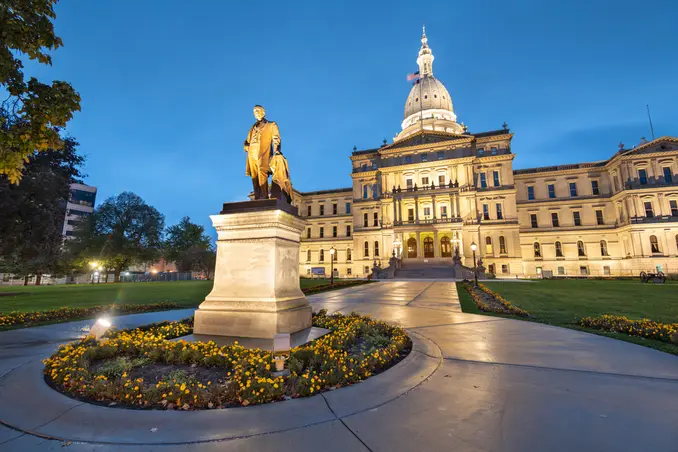Finding Addiction Treatment Services Michigan
Table of Contents
- Finding Addiction Treatment Services Michigan
- Michigan Substance Use: Trends and Statistics
- What are the Key Indicators of Substance Abuse in Michigan?
- What to Consider When Choosing a Michigan Rehab Center
- The Basics of Dual Diagnosis Centers in Michigan
- Finding Addiction Aftercare Services in Michigan
- What is the Cost of Addiction Treatment in Michigan?
- Can I Use Private Insurance to Pay for Michigan Alcohol and Drug Rehab Centers?
- What are Michigan’s Drug Laws?
- Find Effective Michigan Alcohol and Drug Rehab Centers Now
- Get the Resources for Lasting Recovery from Find Addiction Rehabs
The State of Michigan has been ranked as the 10th most drug-addicted state, with research showing that over 60,000 people have been admitted to drug and alcohol rehabs. Over 26,000 people have also been admitted to alcohol rehab programs. Approximately 24% of the affected had alcohol as the primary addiction, while 17% had combined it with secondary substances. Heroin, alcohol, and cocaine have been ranked among the most prevalent drugs, leading to a clear need for quality Michigan alcohol and drug rehab centers.
Fighting an addiction is hard, and you deserve all the help you can get. There are several high-quality drug rehabs in Michigan that offer treatment for individuals battling substance use and seeking long-term success in recovery, whether you are looking for therapy for yourself or someone you care about.
This resource was developed to assist Michigan residents who are battling substance abuse addiction in locating inexpensive treatment that will put them on the road to recovery. It is also meant to educate the public on the hazards of substance usage in Michigan.
If you need assistance finding a rehabilitation center in Michigan, you can rely on our dedicated recovery representatives to quickly locate low-cost, high-quality care for you.
Michigan Substance Use: Trends and Statistics
In any given year, 463,000 Michigan people – 4.63 percent of the state’s population – abuse alcohol, while nearly 1.6 million – 16.73 percent of the population – use drugs. Furthermore, between 2008 and 2017, the state had a drug- and alcohol-related death rate of 16.6 percent, approximately four percentage points higher than the national average.
Lansing, Michigan’s state capital, had the highest percentage of drug- and alcohol-related deaths (18.03 percent) among the state’s five most populated cities over the same time period. This rate was over five percentage points higher than the rate for Detroit, which, while having the state’s greatest population, had the lowest of the five most populous cities, with a death rate of 13.23 percent.
In the year 2020, the state of Michigan reported 2,924 drug overdose deaths. This was a 19% rise over the previous year. Opioids are thought to be the most common drug found in these overdoses.
In 2019, over 78,000 people in Michigan chose to seek treatment for some form of a substance use disorder (SUD). Among the most often misused substances in Michigan that year were:
- Amphetamines– 6.4%
- Marijuana– 5.9%
- Heroin– 28.2%
- Alcohol– 22.1%
- Cocaine– 9.5%
- Other Opioids – 9.3%
Michigan is strategically placed between major drug trafficking hotspots including Chicago, New York, Toronto, and Montreal. With extensive stretches of water and highways around it, the state has swiftly become a transportation hub for cocaine, heroin, and marijuana.
Detroit, with its various points of entry, is involved in the majority of the state’s drug trafficking. The city has long been renowned as a major drug transit point for Colombian Drug Trafficking Organizations (DTOs) operating out of Florida and New York. Detroit’s location near canals and lakes provides drug smugglers with numerous alternatives for product transportation.
Furthermore, huge amounts of illegal narcotics enter the state through the Detroit Metropolitan Airport before being distributed to dealers throughout the state and the Midwest. Drug seizures in Detroit increased by 170% in 2020.
What are the Key Indicators of Substance Abuse in Michigan?
Researchers and policymakers look at “key indications” while attempting to understand substance addiction issues in a certain location. Key indicators, when combined with usage statistics, can provide a deep level of insight into which substances pose the most serious concerns and which groups are most impacted by substance abuse.
Key signs of substance misuse issues in Michigan, as well as recent, verifiable statistics, are discussed below:
More than 1.4 million Michigan residents suffer from mental illness every year
There is a high correlation between substance use problems and mental health illnesses, as mentioned earlier in this guide. When a person has both of these concerns at the same time, health professionals refer to it as co-occurring substance use and mental health disorders, sometimes known as a “dual diagnosis.” As a result, the prevalence of mental health difficulties in a specific state might assist us in determining the extent of substance usage.
In 2017-2018, 4.6 percent of Michigan adults were diagnosed with a serious mental disorder, which is comparable to the national incidence of 4.6 percent. In Michigan, 7.4 percent of adults experienced a major depressive episode in the previous year, compared to a national average of 7.1 percent.
Michigan has a significantly higher opioid prescribing rate than the National rate

Prescription drug misuse, particularly opioid abuse, has become an epidemic in the United States. While it is difficult to estimate how many people use these drugs as prescribed and how many abuse them, the Centers for Disease Control and Prevention has studied the variation in opioid prescriptions across states and found a direct link between an increased level of opioid prescriptions and a higher risk of dependence and abuse.
In 2017, physicians wrote 191 million opioid prescriptions in the United States, resulting in one in every four patients who begin long-term opioid therapy developing an addiction.
After peaking in 2012, the opioid prescribing rate in the United States has been steadily declining for several years, owing to the escalation of the opioid epidemic and the realization of the role that excessive opioid prescriptions have played in this pandemic.
Between 2013 and 2017, the opioid prescribing rate in the United States fell by 24.84 percent, from 78.1 prescriptions per 100 residents to 58.7 prescriptions per 100 residents. During that time period, Michigan’s opioid prescribing rate was continuously higher than the national prescribing rate, falling from 98.9 prescriptions per 100 residents in 2013 to 74.2 prescriptions per 100 residents in 2017, a decline of 24.97 percent.
What to Consider When Choosing a Michigan Rehab Center

There is an array of rehab programs and therapy options to choose from. Here are some of the choices you must make:
- The Setting of Service: Will you be looking into residential inpatient or outpatient programs?
- Rehabs Specialization: Are you looking for holistic rehabs, dual diagnosis rehabs, or just alcohol and drug detoxification?
- Length of Rehab: Are you seeking a 30-day rehab program or a longer-term alternative (perhaps 60, 90, or over 120 days)?
The severity of your addiction, as well as your specific personal and financial situation, will determine which rehab alternatives are ideal for you.
Substance Abuse and Finding Michigan Drug Rehabs for At-Risk Groups
As per the Michigan Statewide Homeless Management Information System, 3,734 homeless veterans lived in Michigan in 2017, with 73 percent suffering from a long-term ailment. Their disabilities were also classified: 59% of homeless veterans had a mental health condition, 57% had a physical health condition, 40% had a substance misuse issue, 36% had a chronic health condition, and 3% had a developmental disability.
Veterans in Michigan should contact their local VA medical center to learn more about drug abuse treatment options in their state, including the possibility of a VA-based substance use disorder (SUD) program. They can also get information about substance addiction treatment options on the Michigan Veterans Affairs Agency website or by contacting a Veteran Navigator near them for help connecting with resources.
Treatment is offered in Michigan for veterans suffering from a substance use disorder. In 2017, 91 substance misuse treatment clinics in Michigan catered particularly to veterans, accounting for 20% of all treatment centers.
Adolescent Substance Abuse Treatment in Michigan
Between 2014 and 2017, 8% of Michigan adolescents aged 12-17 reported engaging in marijuana use in the past month, which was above the national average of 6.8%. A further 10.8% of Michigan adolescents aged 12-17 had consumed alcohol in the past month, only marginally above the national average of 10.1%. Additionally, 1.8% of individuals admitted to a substance abuse treatment program in Michigan in 2017 were aged 12-17.
The Basics of Dual Diagnosis Centers in Michigan

Substance abuse and mental health problems frequently coexist – the other formal phrase is “co-occurring substance use and mental health disorders.” According to the Substance Abuse and Mental Health Services Administration (SAMHSA), 45.6 percent of all people in the US with a substance use disorder had a mental health issue in 2017, while 18.3 percent of persons with a mental health disorder had a substance use disorder.
In 2017, 35.9% of adolescents with a substance use problem also had a major depressive episode, whereas 10.7% of those with a major depressive episode also had a substance use disorder.
There are over 200 mental health treatment centers in the state that are either public or private. The most common form of treatment for mental disorders in the state is psychotherapy. Patients are taught to overcome the issues that bring distress to them. The patients also undergo behavior therapy, enabling them to adjust and learn how to associate responsibly with others. About 80% of people struggling with drug addiction have problems with their mental health.
These mental health issues may be the cause of their addiction or a side effect of the substances they abuse. The cost of mental health treatment is relatively high. People with health insurance have the upper hand when seeking treatment since they do not spend much out of pocket on the treatment. Most people have opted to seek treatment out-of-state due to the overstretched treatment resources within Michigan.
The high addiction rates in Michigan could be a result of the struggling economy of the state. The recession badly affected Michigan, and most recovery efforts aimed to improve the economy rather than drug and substance control. Inpatient drug rehabilitation treatment is commonly used in the state, given its effectiveness. However, only about half of the people affected by addiction can access this treatment.
Michigan Mental Health Resources & Treatment
If you or someone you care about is suffering from a mental health problem, such as depression, eating disorders, PTSD, or severe anxiety, there are numerous options available to assist you.
According to MentalHealth.gov, there are several ways to get immediate help:
Emergency Services:If your life (or the life of someone else) is in danger, always contact 911 for rapid access to emergency response services.
Suicide Prevention:The National Suicide Prevention Lifeline number is 800-273-8255. You can also start a private chat online.
Michigan National Alliance on Mental Illness (NAMI)
The NAMI Michigan website includes a section devoted to program descriptions. The NAMI Basics Education Program, for example, is developed for caregivers of children and adolescents with mental illnesses.
Dual-diagnosis treatment programs may aid those suffering from both substance misuse and mental health disorders. To identify rehabilitation centers with treatment programs tailored to meet the unique problems given by co-occurring substance use and mental health disorders, select the appropriate filter in our tool above.
Finding Addiction Aftercare Services in Michigan

Substance abuse aftercare treatment is often overlooked, despite the fact that it is an important stage in the rehabilitation process. Individuals who attempt to continue their lives without getting further treatment in an aftercare setting significantly increase their chances of relapsing following rehab.
Aftercare services for recovering addicts include follow-up appointments for continued therapy, group therapy, and sober living homes. According to research, long-term participation in aftercare programs increases the outcome of rehabilitation efforts significantly.
12-Step Addiction Meetings in Michigan
The 12-step approach was developed by Alcoholics Anonymous (AA) for persons recovering from alcohol addiction, and today there are numerous additional 12-step groups for other addictions and disorders — Narcotics Anonymous (NA) being only one of many examples.
Michigan Sober Living Homes
Sober living homes (also known as recovery residences) are group homes that help recovering addicts move from treatment facilities to independent living while remaining sober. Sober houses can be particularly beneficial for those who don’t have a supportive and positive environment to stay in after leaving a rehabilitation facility.
Residents in sober living homes can stay for a few months to several years if they follow house rules and avoid relapse, as these facilities often have a zero-tolerance drug and alcohol policy. Residents in most sober living facilities are typically required to accomplish tasks or chores, attend mutual support groups, and contribute the predetermined amount for rent in addition to maintaining abstinence from alcohol and drugs.
Our database has several sober living homes, which you may find by using the proper filter in our tool above.
What is the Cost of Addiction Treatment in Michigan?

Treatment costs in Michigan can vary. It may be free or dramatically less expensive for individuals who have health insurance. However, for people without insurance, substance abuse therapy can be quite costly.
According to SAMHSA:
- There are over 300 substance abuse treatment clinics in Michigan that take Medicaid.
- The state has 342 programs that accept private health insurance.
- In Michigan, over 380 establishments allow cash payment, often known as private pay.
- Sliding scale pricing alternatives are available in 160 programs for individuals who qualify depending on income.
Paying for Treatment with Medicaid in Michigan
Because the person does not have to pay for coverage or treatment services, using Medicaid to pay for treatment in Michigan may be the most cost-effective option. However, one of the disadvantages of Medicaid is that it is usually accepted by fewer programs, restricting one’s options to state-funded facilities. Because Michigan has over 2.7 million Medicaid recipients, these facilities are frequently overcrowded and have waiting lists.
Can I Use Private Insurance to Pay for Michigan Alcohol and Drug Rehab Centers?
Drug rehab in Michigan can be less expensive with private insurance. In most cases, in addition to paying the premium to keep coverage, the individual must pay a share of the treatment costs. However, having private insurance usually provides the individual with more treatment options.
Furthermore, clinics that take private health insurance frequently do not have waiting lists and offer high-quality care.
Many people, however, cannot afford private health insurance. Nonetheless, they may not be in enough financial distress to qualify for Medicare, leaving them uninsured. Fortunately, Michigan has an expanded Medicaid program that provides lower premiums on certain insurance to those who are primarily uninsured.
The following insurers are offered through Healthy Michigan, Michigan’s exchange marketplace:
- Meridian
- UnitedHealthcare
- US Health and Life Insurance Company
- Molina
- Priority Health
- McLaren Health Plan
- Blue Care Network
- Physicians Health Plan
- Oscar Health
- Blue Cross Blue Shield of Michigan
Paying for Treatment in Michigan Without Insurance
Despite all of the above efforts to locate assistance in paying for care, an awful number of people in Michigan still end up paying for therapy while they are uninsured. This is because most substance abusers stop taking care of themselves at some time throughout their addiction, which usually includes maintaining or obtaining health insurance. As a result, when they require treatment and are ready, they are frequently underinsured.
Fortunately, there is one last option for anyone in need of financial support. More than 150 organizations in the state provide sliding scale financial assistance, which determines a discount based on the individual’s income. The higher the discount, the lesser their income.
You can reach out to one of the treatment specialists at Find Addiction Rehabs for a full description of policy details and what your insurance will cover, as well as the out-of-pocket expenses, if any.
What are Michigan’s Drug Laws?

In Michigan, drug possession regulations are severe and normally fall into one of two categories: simple possession (for personal use only) and possession with intent to distribute. Being accused with intent to distribute a controlled substance frequently results in much harsher punishment.
Possessing an illicit drug in Michigan entails more than simply having it in your possession. Possession of an illegal substance can be charged whether it is discovered at your home, automobile, or even lying next to you on the ground.
Schedule I and II narcotics, such as cocaine, heroin, methamphetamines, ecstasy, and prescription opiates, are among Michigan’s most hazardous and addictive substances. Even for modest amounts, these carry significant drug penalties. In some cases, the court will allow first-time offenders to undergo a rehabilitation program instead of incurring probation or jail time. The type of drug and the quantity in possession may result in different charges and fines.
Marijuana Laws in Michigan
Michigan became the tenth US state to legalize recreational marijuana usage for adults in December 2018. Citizens over the age of 21 are permitted to purchase and carry up to 2.5 ounces of marijuana. Any amount over that can result in a $500 fine. The maximum amount that can be legally maintained at home is 10 ounces.
Despite the fact that the substance is legal, there are a few limits. Marijuana should be consumed on private property rather than in public places where users could face a civil offense. Driving under the influence of marijuana, as well as using the substance in a car, remain unlawful. These actions may result in community service hours, 93 days in jail, or a $300 fine. Marijuana growers are permitted to keep up to 12 plants as long as they are kept in a secure location.
Harm Reduction Programs in Michigan
Michigan has a number of programs in place to help reduce the harm on its populace caused by substance abuse. The Prescription Drug Monitoring Program (PDMP), also referred to as the Michigan Automated Prescription System (MAPS), is a service that helps in the assessment of patients and the tracking of prescriptions for Schedule 2 through 5 substances.
Medical personnel are obligated to register what substances are prescribed, which reduces the possibility of abuse through double prescriptions and drug interactions. This program has been extremely beneficial in the treatment of opioids. The Michigan Department of Health and Human Services (MDHHS) stated in 2020 that the state’s opioid prescriptions had reduced by 25%.
Two more harm reduction strategies were mentioned in the MDHHS task force report: naloxone distribution and syringe service programs (SSP). SSPs have been shown to enhance the likelihood of an individual entering treatment and to reduce the spread of HIV/AIDS, in addition to potentially reducing overdoses. Because emergency medical services for opioid overdoses increased by 33% in Michigan, Naloxone distribution is more important than ever.
Michigan and the High-Intensity Drug Trafficking Area (HIDTA) Program
The High-Intensity Drug Trafficking Area (HIDTA) program aids law enforcement agencies at all levels in critical drug-trafficking locations around the United States. HIDTA operates in over 600 counties across the United States with the purpose of disrupting the illegal drug market and trafficking. The authorized Michigan HIDTA counties as of 2021 include:
- Allegan
- Lapeer
- Muskegon
- Wayne
- Van Buren
- Kent
- Kalamazoo
- Genesee
- Oakland
- Saginaw
- Macomb
- Washtenaw
Drugs imported from Canada play a crucial part in the Michigan HIDTA program. These counties have received financing for cutting-edge equipment and other resources to hunt down and demolish any Drug Trafficking Organizations (DTOs). The major drug markets in the HIDTA’s eastern regions are Detroit, Flint, and Saginaw. Grand Rapids and Kalamazoo are the most populous markets on the western side.
In Michigan, heroin trafficking and misuse have become as prevalent as cocaine trafficking and abuse. The HIDTA is stepping up its efforts to combat these deadly narcotics.
The Michigan HIDTA’s ongoing projects include:
- Safe Streets Initiative: Law enforcement organizations increase their presence in high-risk neighborhoods renowned for the violent street drug trade.
- Conspiracy One Task Force:The Detroit Police Department and the Federal Bureau of Investigation have formed a partnership to target regional, national, and international cocaine trafficking networks.
- Southeastern Michigan Money Laundering Task Force:Federal and state agencies are collaborating to demolish the economic infrastructure of major narcotics groups operating in Michigan.
- Drug Enforcement Administration Group Six:Drug Trafficking Organizations (DTOs) are immobilized by a multi-agency unit in an attempt to halt drug trafficking via southeastern Michigan.
Court Ordered Treatment in Michigan: Public Act 200 of 2014
The Michigan Senate enacted legislation in June 2014 that empowers judges to send adults to forced drug misuse treatment. Family members can now appeal for involuntary substance misuse treatment if a person refuses to seek help for their addiction.
If authorized, the court may order compulsory therapy for up to 72 hours, or until a hearing with evidence that the person poses no risk to themselves or others is held.
Find Effective Michigan Alcohol and Drug Rehab Centers Now
According to the SAMHSA directory, Michigan has approximately 400 drug recovery institutions. This comprises roughly 75 detox services and short-term residential programs, more than 60 long-term facilities, and 350 outpatient programs.
Find Addiction Rehabs provides a comprehensive database of local resources, including alcohol and drug rehabs with top family programs, marijuana addiction therapy, non-12 step rehabs, and Christian rehab institutions. Detroit, Michigan has 74 drug rehab programs. Detoxification centers, inpatient treatment, outpatient drug rehab, and residential and aftercare support are all part of these programs.
Get the Resources for Lasting Recovery from Find Addiction Rehabs

We know that looking for drug treatment in Michigan on your own might be difficult at times. In such circumstances, our addiction specialists are available to assist. When you contact one of them, they will ask you a series of questions to help them evaluate which program is best for you. You will be able to contact them at any time during the process until you arrive at the facility.
Substance abuse treatment is accessible in Michigan for everyone who requires assistance in overcoming an addiction – you do not have to fight alone. To get help, simply reach out to our dedicated recovery representatives today to get a breakdown of options in Michigan and nationwide for you or your loved one. The time to get help is now!
Eric R. hails from Maine and does extensive work in the field of behavioral health as both a professional writer and passionate advocate for those suffering. From his own personal encounters with mental illness, he speaks to those seeking healthy relief from depression and anxiety and embraces wellness both personally and professionally. After losing friends and family to the darkness of suicide, Eric aims to educate and inform about the nature of treatment and render it accessible for all those seeking a way out of darkness and despair.

